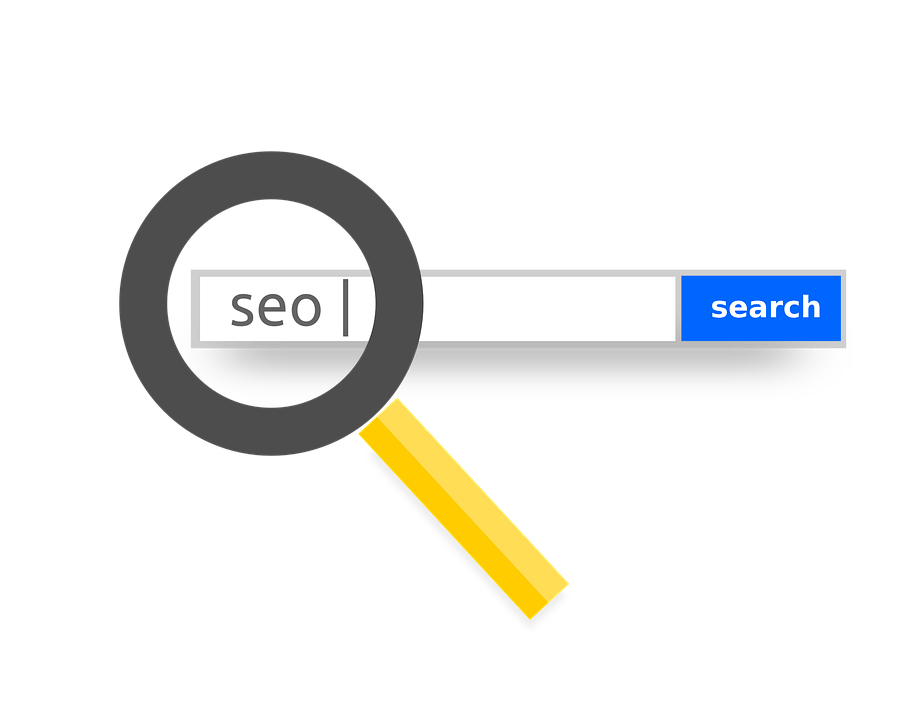A focus of my blog is Technology. The internet has a lot of uses, and arguably has hurt humanity, but it does have its upsides and advantages. The following contributed post is entitled, How the Internet Can Help You Be a Better Thinker.
* * *

Are you someone who wants to improve their intelligence or learn how to think about novel ideas in a more interesting way? Maybe you want to know more about our history, so you can learn lessons that will serve you well in the future, or you want to be able to think about the big questions of life in a more fruitful way? Well, you’re lucky to be alive right now because the internet means you have more information than ever before available at your fingertips, and many of its websites, tools and apps, can certainly help you to be a better thinker, as you will see below. Ready to CTRL your thinking?
1. Use Search Engines Like a Detective, Not a Tourist
Google is more than just a spell-checker for your tweets. When you treat search as a skill, rather than a last-ditch panic button, you unlock precision and depth. Start by using quotation marks to find exact phrases (“confirmation bias” yields better results than confirmation bias). Try minus signs to exclude irrelevant topics (pandas -the animal). Dive into advanced search filters—date ranges, domains, file types. Suddenly, your search results look less like a lottery ticket and more like a curated dossier. With practice, you’ll feel the thrill of unearthing obscure white papers or the original source of that dubious infographic your cousin posted.
2. Historact and Other Time Machines for Context
Historical perspective is thinking fuel. Historact, for instance, offers interactive timelines of political events, cultural shifts, and landmark inventions. Instead of flipping through dusty textbooks, you can zoom through centuries of data, spot patterns, and connect dots you never knew existed. If you’re researching the rise of social media you can see when Myspace peaked or how Twitter reacted to major world events. Thanks to these digital chronologies, you develop a habit of asking, “Has this happened before?” and avoid reinventing the wheel when you’re busy inventing your next genius idea.
3. Podcasts are Brain Snacks on the Go
Forget mindless scroll-seshes during your commute. Swap them for podcasts that challenge your assumptions or introduce you to new frameworks. “Stuff You Should Know” breaks down complex topics with the charm of your favourite bartender. “The Daily” offers deep dives into news that actually matters, not the usual celebrity nonsense. If you crave hardcore intellectual grit, try “Philosophize This” for a guided tour of big ideas, from Socrates to postmodernism. With earbuds in, you’ll absorb new vocabulary, fresh perspectives, and unexpected arguments—no PowerPoint required.
4. Online Courses for University Without the Moustache-Stroking Professors
Massive open online courses (MOOCs) let you audit lectures from top universities for free. Platforms like Coursera, edX, and Khan Academy cover everything from logic and critical reasoning to cognitive science and behavioral economics. You can binge-learn at midnight in your pajamas, without feeling judged for pausing the video thirty times to grab a snack. Completing assignments and peer-review exercises helps you apply concepts rather than just hoard knowledge. Before long you’ll be casually dropping terms like “Bayesian inference” into dinner conversation, and maybe even impressing your in-laws.
5. Reddit and Stack Exchange are Like Debate Clubs for Keyboard Warriors
There’s value in exposing your ideas to polite disagreement. Subreddits like r/AskHistorians or r/ChangeMyView host rigorous discussions where claims must be backed by evidence. Stack Exchange communities specialise in everything from philosophy (philosophy.stackexchange.com) to programming puzzles. When you post a question or answer, you refine your arguments for clarity and accuracy, because the internet’s best critical thinkers are lurking, ready to correct your grammar or your logic. Skin thickens, reasoning sharpens, and you learn how to argue without sounding like a clickbait headline.
6. Mind-Mapping Tools to Visualise Your Thoughts
Cluttered ideas lead to cluttered conclusions. Mind-mapping software like MindMeister or Coggle lets you lay out concepts, subtopics, and relationships in a zoomable canvas. Instead of scribbling random arrows on paper, you can drag nodes, colour-code branches, and collapse sections as your plan evolves. When tackling a big topic—say, climate change—you can map greenhouse gases, policy measures, economic impacts, and ethical debates in one interactive diagram. Seeing the whole structure at a glance helps you identify gaps, contradictions, and connections you might have missed.
7. Newsletters and Blogs Offer Curated Wisdom in Your Inbox
Tired of doom-scrolling through sensational headlines? Subscribe to newsletters that deliver distilled insights. Benedict Evans analyses tech trends with data-driven clarity. Farnam Street explores mental models and decision-making tools that help you think more effectively. Aeon essays provoke deep reflection on philosophy, science, and culture. By receiving quality content in digestible bites, you cultivate a habit of regular intellectual stimulation. Over time your inbox becomes less junk pile and more personal think tank.
8. Social Media Smart Use
Social platforms can be echo chambers or idea marketplaces, depending on how you use them. Curate your feed by following thought leaders, academics, and experts outside your comfort zone. Mute or unfollow accounts that thrive on outrage or clickbait. Use Twitter lists to group sources by topic—journalists in one, researchers in another, satirical accounts in a third. Engage with posts by asking clarifying questions or linking to credible sources. Even 280 characters can teach brevity and precision in argumentation, if you resist the urge to flame someone who disagrees.
9. Google Scholar and Research Databases Offer Access to the Ivory Tower
When you really need evidence, turn to Google Scholar or institutional repositories. Abstracts give you the gist, while full-text PDFs (if available) provide the rigorous data behind claims. Save citations, export bibliographies, and track citations to see who’s building on whose work. Whether you’re investigating the psychology of decision making or the efficacy of online learning, these academic tools root your thinking in peer-reviewed studies, not unverifiable listicles. It’s like upgrading from fast food opinions to gourmet scholarly cuisine.
10. Writing Platforms for Reflection through Composition
Writing is thinking. Platforms like Medium, Substack, or a private WordPress blog give you space to articulate and organise your ideas. The act of drafting forces you to structure your thoughts, identify weak spots, and seek supporting evidence. If you publish publicly, reader comments and feedback spur further refinement. Even a simple journal in Evernote or Notion helps solidify your learning. Plus, looking back at past entries reveals your intellectual growth—proof that your effort is paying off.
11. Virtual Discussion Groups and Webinars for Live Idea Exchanges
Nothing sharpens your mind like real-time conversation. Join Meetup groups, professional forums, or webinar Q&A sessions on subjects that fascinate you. Services like Zoom and Discord host book clubs, coding workshops, and philosophy salons. Interactive polls, breakout rooms, and live chat channels create an environment where you can test ideas on the fly. This dynamic exchange builds confidence, exposes you to alternative viewpoints, and injects a dose of serendipity into your learning journey.
12. Browser Extensions are Your Personal Thought Assistants
Little helpers can automate the mundane so you focus on the tricky bits. Extensions like Pocket let you save articles for offline reading, so you never lose a thought in the chaos of tabs. Linguix or Grammarly catch writing slips before they distract readers from your brilliant arguments. Dark Reader makes late-night study sessions easier on the eyes. And if you really want to gamify productivity, tools like Forest reward you for staying off social media when you should be concentrating.
13. Trend-Tracking and Alert Services to Stay Ahead of the Curve
Understanding emerging ideas keeps your thinking flexible. Use Google Alerts to notify you when a topic of interest appears online. Feedly or Inoreader aggregate RSS feeds from niche blogs, journals, and news sites so you can scan headlines at a glance. Services like Exploding Topics surface growing interests before they hit mainstream. When you spot a rising field—say, quantum computing or blockchain ethics—you can dive in early, positioning yourself as a knowledgeable voice rather than a late-arriving bandwagon jumper.
14. Collaborative Documents Offer Collective Brainpower
Google Docs, Notion, and Dropbox Paper allow multiple minds to work on the same page. Whether you’re planning a project, drafting a debate script, or co-authoring an article, real-time collaboration exposes you to other peoples’ thought processes. Comment threads become mini-workshops where ideas evolve through constructive critique. You’ll learn how to present arguments succinctly, respond to objections gracefully, and synthesise diverse insights into a coherent whole.
15. Digital Libraries and Archives are Treasure Troves of Thought
Public domain collections, like Project Gutenberg or the Internet Archive, give you free access to classic texts from Plato to Virginia Woolf. For modern works, your local library’s OverDrive or Hoopla services lend ebooks and audiobooks without late fees. Google Books previews let you skim chapters before you decide to buy or borrow. These resources feed your curiosity and build a rich backdrop of knowledge that informs all your online explorations.
Your Brain, Upgraded and Online
As you can see, although the internet often gets a bad wrapf or making us stupider, frying our brains with endless memes and conspiracy theories, it is actually one of the greatest tools we have at our disposal when we want to smarten up, think better and ponder the world around us in a more interesting way. The key is to use it right, and these 15 tools will certainly help with that!







